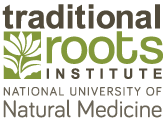
PORTLAND, Ore. (Oct.10, 2013) — Smithsonian research scholars Alain Touwaide, PhD, and Emanuela Appetiti have spent the past two decades on a scientific quest that appears to be lifted straight out of an Indiana Jones movie. The treasures they seek don’t put them in the path of rolling boulders, but do offer critical insight into the lost knowledge of ancient Mediterranean botanical medicine. The pair, through their Institute for the Preservation of Medical Traditions, conducts groundbreaking research bridging past and present, restoring the broken lineage of ancient Mediterranean medical traditions to modern medical practice.

The Traditional Roots Institute at National College of Natural Medicine (NCNM) from Oct. 30 to Nov. 2 hosts Touwaide and Appetiti for a series of lectures on their research, ”4,000 years of clinical trials.” The first two talks, on the evenings of Oct. 30 and Nov. 1, spotlight the pair’s discoveries, and link them to modern clinical practice. The final lecture, offered in partnership with the Hellenic-American Cultural Center and Museum on Nov. 2, focuses on ancient Greece and its legacy to modern world medicine.
The goal of Traditional Roots Institute, launched in March 2013 and sponsored by Herb Pharm, is to raise awareness of herbal medicine, a key element of naturopathic medicine.
“Plants have been used for healing for thousands of years,” NCNM President David J. Schleich observed. “While the origins of most pharmaceutical medications used today are primarily plant-based, there is a disconnect among most Americans about how pharmaceutical medicine is derived,” he explained.
“At the same time,” Schleich observed, “we are seeing a surge of interest throughout the country in plant-based, natural medicine as more people seek complementary and alternative health care. The ancient medicine is experiencing a revival.” Schleich said. “More than ever, the findings of Dr. Touwaide and Ms. Appetiti are relevant as they work to integrate traditional resources into contemporary medical research.”
NCNM’s Traditional Roots Institute, led by Orna Izakson, ND, an NCNM graduate and registered herbalist, is especially pleased to bring Touwaide and Appetiti to the campus to share their research.
“Traditional Roots Institute has a simple goal: to feed and grow natural medicine’s long-established herbal roots,” Izakson explained.
“We are thrilled to have these respected scholars from the Smithsonian Institution join us at NCNM. The Mediterranean is home to some of the most important botanical medicines in use today, but so much of the ancient wisdom has disappeared—to the detriment of patients. Appetiti and Touwaide have amassed 23,000 documents that represent the critical missing links of herbal medicine, restoring this precious heritage to both practitioners and their patients,” Izakson said.
A donor-advised fund from the Oregon Community Foundation is generously underwriting the Smithsonian Scholars’ visit to Portland.
For more information or to register for any of the three lectures, visit “Smithsonian Scholars: 4,000 years of clinical trials.”
ABOUT NCNM
Founded in Portland in 1956, NCNM is the oldest naturopathic medical school in North America and an educational leader in classical Chinese medicine and CAM research. NCNM offers three accredited four-year graduate medical degree programs in naturopathic and classical Chinese medicine, as well as a Master of Science degree in Integrative Medicine Research and a Master of Science degree in Nutrition. Its community clinics provide low-cost medical care throughout the Portland metropolitan area. In addition to the campus-based NCNM Clinic, NCNM practitioners attend to approximately 40,000 patient visits per year. Until July 2006, NCNM was known as the National College of Naturopathic Medicine. The name change reflects the diversity of the college’s programmatic degree offerings.

